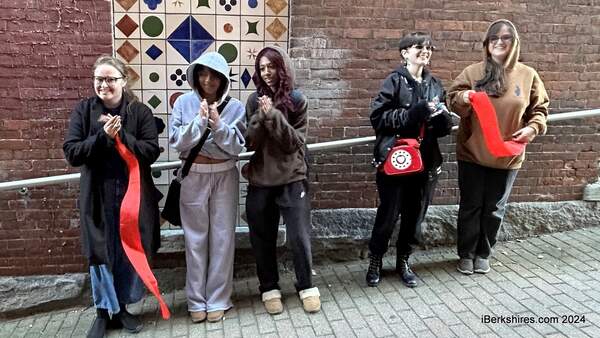PITTSFIELD, Mass. — Patients and staff are expected to be on their best behavior at Berkshire Health Systems — especially after Oct. 2.
That's when a new code of conduct goes into effect at all offices and facilities of the health system, including Berkshire Medical Center.
"Our goal here is to make sure that we're providing a safe and welcoming place to receive care for everyone that walks through our doors and to encourage constructive conversations with one another," said Darlene Rodowicz, president and CEO, Berkshire Health Systems.
The code lists a number of actions and activities that officials say effect the health systems ability to offer a safe and welcoming environment for patients and staff alike.
These include violent, foul or abusive behavior and words; offensive comments related to race, sexual orientation, religion or personal traits; disrupting other patients care or experience; photographing or videoing others without consent; possession of weapons or firearms; and refusing care from a staff member based on personal traits.
Such actions could lead to requests to leave the facility or even be prohibited from coming on campus for non-emergency situations.
Officials said the implementation of the code is a result of instances of rude and abusive behavior at the hospital system and the attitudes that seemed to have seeped into society especially since the stress and isolation of the pandemic.
"I think we're not immune to that and it happens in a health-care setting as much as it does on the airplane or in the supermarket," she said. "And we have certainly experienced that and that's exactly what this code of conduct is trying to address."
Rodowciz is a member of the board of trustees of the Massachusetts Health & Hospital Association that late last year voted to implement codes of conduct at their respective facilities.
BHS set up a 25-member task force, said Charles Redd, the system's diversity, equity and inclusion officer, and sought input from the entire hospital community.
"We really wanted to create something that really had the input of everyone," he said. "So I think a lot of the language in there is really because of that input."
Rodowicz stressed that the hospital would not turn away anyone in an emergency and would take into account actions that might result from medical conditions or substance issues.
"That is an obligation that we have as a hospital no matter what," she said. "But if you have an office visit and you're threatening and disruptive, then we have the right to start restricting you going into that office."
The health system will also develop an appeal process, possibly through a committee or through other offices to allow anyone being banned to present their case to a group. And, Rodowicz said, it will work with the individual to determine the best way forward.
"We intend for this to be positive and productive to set expectations so that we can avoid and minimize the chance for something terrible happening in the future that has happened in other parts of the country," she said.
| If you would like to contribute information on this article, contact us at info@iberkshires.com. |















